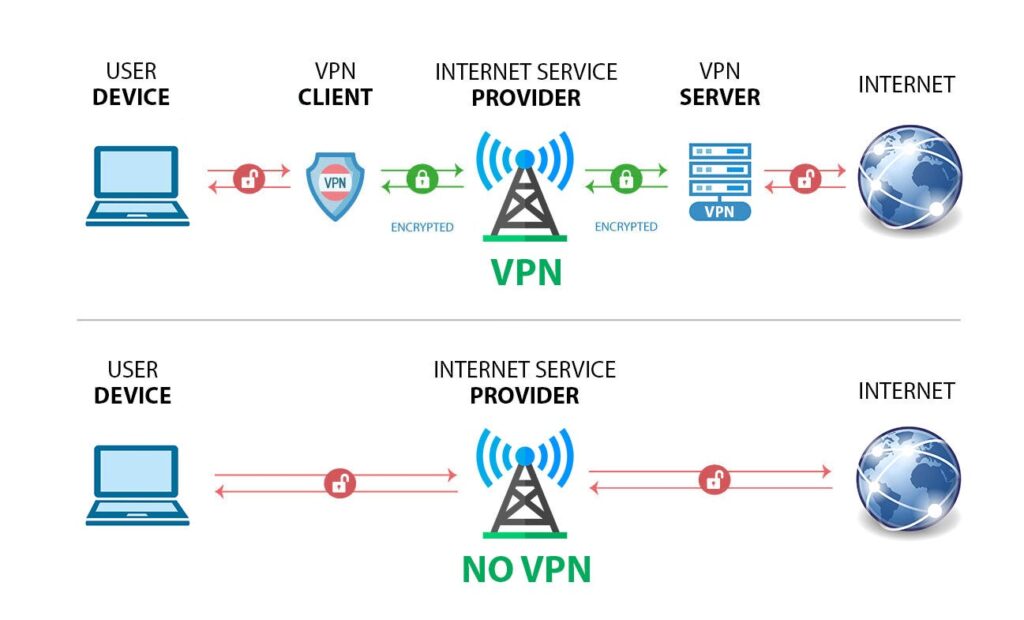
A VPN, which stands for virtual private network, establishes a digital connection between your computer and a remote server owned by a VPN provider, creating a point-to-point tunnel that encrypts your personal data, masks your IP address, and lets you sidestep website blocks, and firewalls on the internet. This ensures that your online experiences are private, protected, and more secure.
By its very definition, a VPN connection is:
- Virtual because no physical cables are involved in the connection process.
- Private because through this connection, no one else can see your data or browsing activity.
- Networked because multiple devices—your computer and the VPN server—work together to maintain an established link.
VPNs allow secure access to corporate resources by establishing an encrypted tunnel across the Internet.
The ubiquity of the Internet, combined with today’s VPN technologies, allows organizations to cost-effectively and securely extend their networks’ reach to anyone, anywhere, anytime.
Variable Speed Connectivity offering ranges from 64K to multiple 1GB
Network coverage is based on the industry-leading MPLS technology.
Fully managed 24/7 end-to-end network performance monitoring.
